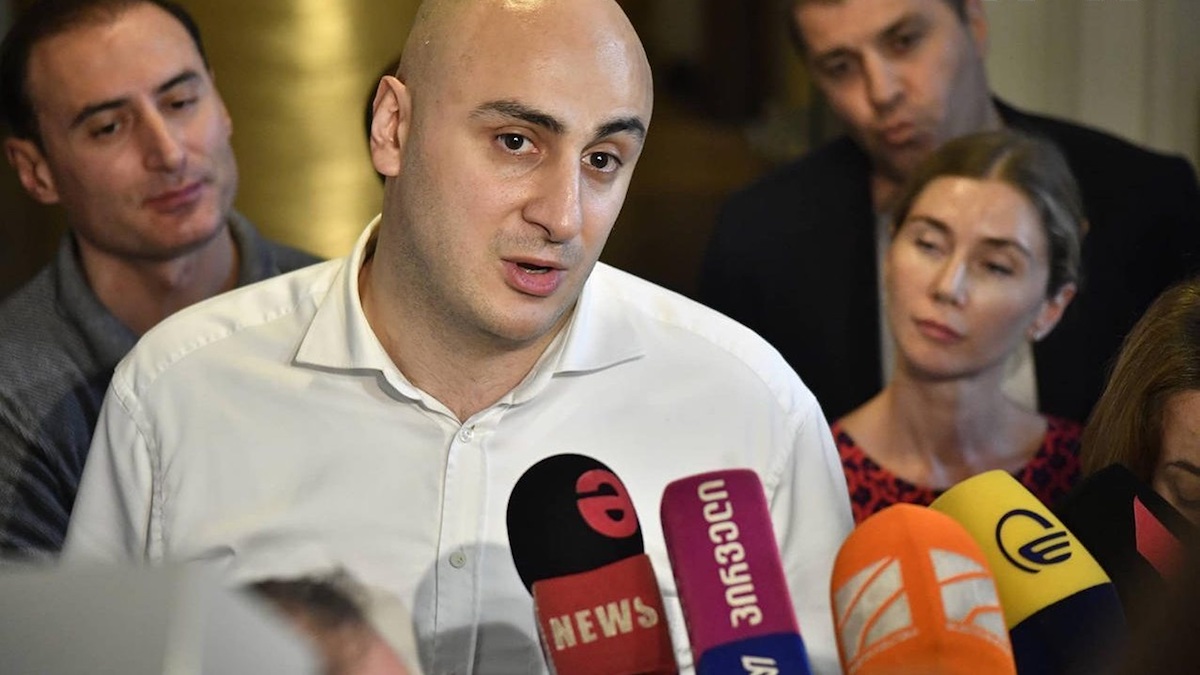Who is Garibashvili – Georgia’s former, soon to be new PM
The parliament of Georgia is deliberating on the nomination of Defense Minister Irakli Garibashvili for the post of prime minister, who has already held the post in 2013-2015 – but who is Garibashvili, Georgia’s former and soon to be new prime minister? And what would his premiership mean for the country?

Garibashvili is one of the politicians closest to Georgia’s shadow ruler, billionaire Bidzina Ivanishvili, who announced his alleged ‘exit’ from politics in January earlier this year.
The post of prime minister was vacated after Giorgi Gakharia announced his resignation from the post on February 15, naming the main reason for his disagreement with his party as the court’s decision to issue a warrant for the arrest of the leader of the largest opposition party in the country, the United National Movement.
Gakharia said that he not only considers the arrest warrant for Nika Melia – the UNM chair – unfair, but that it could spark the growth of political escalation in the country.
- Op-ed: what to make of the resignation of the Georgian PM
- Op-ed: why controversial ex interior minister Gakharia was appointed PM
Why was Garibashvili chosen and what should Georgia now expect? Georgian experts weigh in
David Zurabishvili, political commentator:
“What does Prime Minister Garibashvili mean for Georgia? His return to power once again showed that Bidzina Ivanishvili did not actually leave politics. The decision on this appointment, of course, was made by Ivanishvili. It seems incredible to me that the ruling party, which is practically alone in the new parliament, would hand over the reins of government to Garibashvili of its own accord.
The overwhelming majority of opposition MPs are boycotting parliament, considering the elections held on October 31, 2020 to be rigged. The new parliament of Georgia began its work on December 11 as a one-party parliament (only members of the ruling Georgian Dream party). In February 2021, four opposition MPs began working in parliament.
Garibashvili, most likely, will pursue a tougher course. That is, there will be more authoritarianism, more disregard for what is called democracy, human rights, liberalism. I also expect the fascist sentiment to rise.”
Gia Khukhashvili, political scientist:
“By accepting Garibashvili’s appointment, the government shows that they are in political agony, they are going to wag their tails and play ‘good boys’.
Gakharia’s exit is a political act. So now, early parliamentary elections have become inevitable. [ed. The united opposition put forward a demand for new parliamentary elections immediately following the results of the elections held on October 31].
The future of the government looks more problematic than it could be. But they see no other way for themselves.
As for Garibashvili himself, he and his macho rhetoric should not be taken seriously. They will tell him to sit down – he will sit down, they will tell him to get up – he will get up. It turns out that the Georgian Dream is now hanging in the air. They have no support for the electorate. And there is no longer the last support that Prime Minister Gakharia was for them.”
Vano Machavariani, security expert:
“We have a government in which the dentist of Bidzina Ivanishvili – his guards, his assistant, his secretary – work. Now Prime Minister Garibashvili, who is also a member of Ivanishvili’s inner circle, will work there. All this suggests that clan rule in Georgia continues, and Ivanishvili has not really gone anywhere.
The arrival of Garibashvili will mean a radicalization of politics. The ruling Georgian Dream has no other task than to confront the opposition. They probably thought that the opposition United National Movement (the party of ex-President Mikheil Saakashvili) would not gain more than 3-4 percent in the elections. But it turned out differently.”
Edisher Gvenetadze, expert:
“Irakli Garibashvili has become one of the leading figures in Georgia. Despite his young age, he has extensive experience in leading the cabinet of ministers. Undoubtedly, he is the leading political figure in the country.
I welcome the fact that in today’s Georgia there is a political team that managed to nominate a person like him in one day.”
Iago Kachkachishvili, sociologist:
“Garibashvili will start fighting not only with the opposition, but also with international partners. The first serious test for him will be the ‘case’ of one of the leaders of the opposition Nika Melia.
Garibashvili was returned to the post of prime minister in order to strengthen authoritarianism, a tough attitude towards the opposition. What Gakharia could not or did not want to do – Garibashvili will do without hesitation.
However, the second question is whether such a policy will be successful. I think that tough action is at least a bad choice. In the worst case, he will further bankrupt himself and the image of the party.”
David Darchiashvili, expert, former member of the opposition party European Georgia:
“The myth of Ivanishvili leaving politics turned out, in the end, to be a myth. The return of Garibashvili is his decision.
This shows that the ruling party has gone in for complete aggravation. The authorities need to take into account many factors now, including the international reaction. However, Garibashvili is unable to hear what the ambassadors are saying and what the international context is. Garibashvili does not know how to listen to anyone but Ivanishvili.”



















